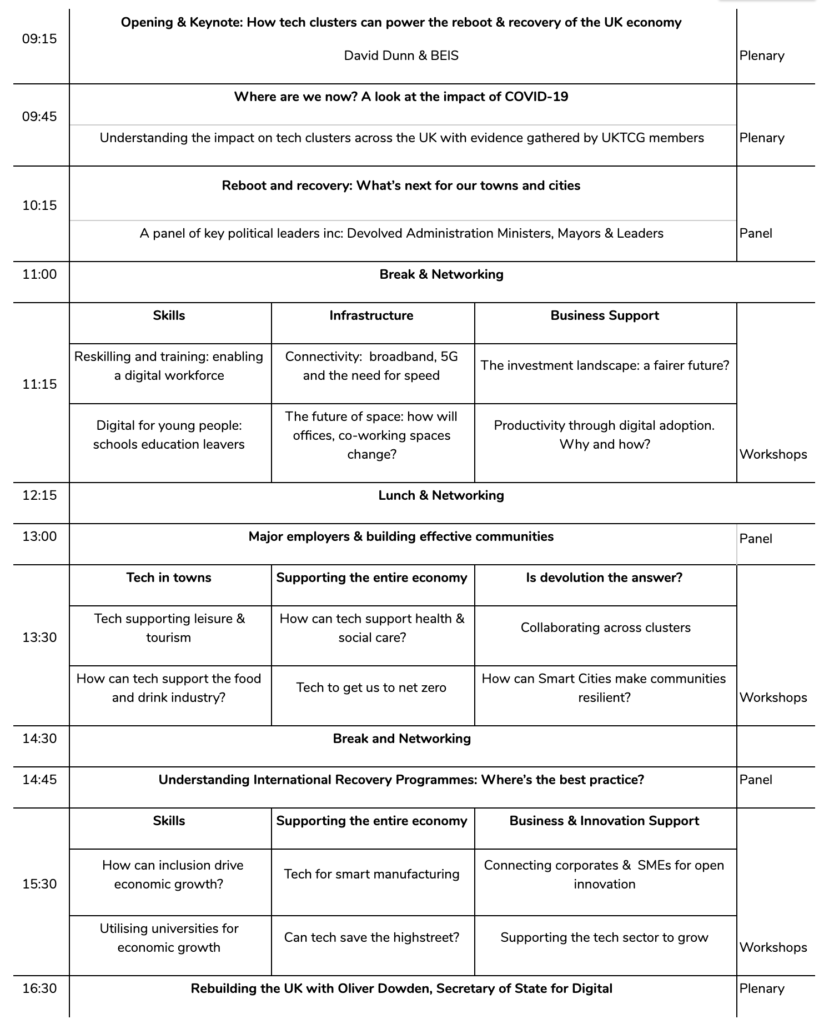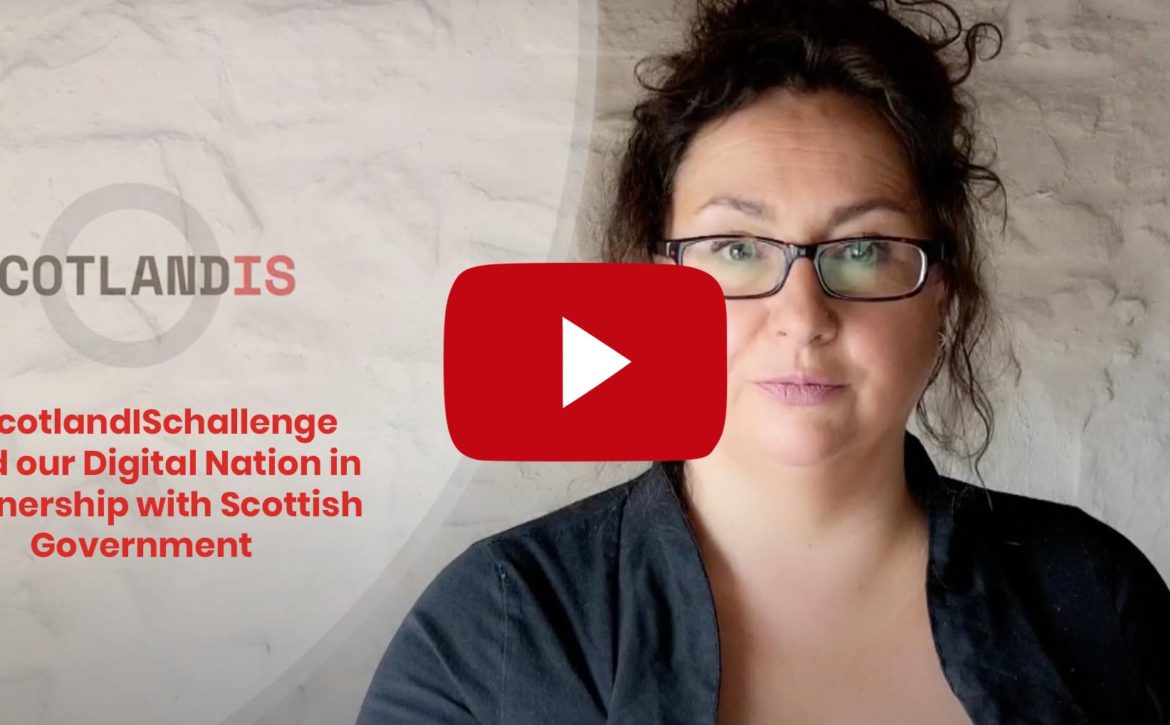The government has been urged to prioritise the establishment of new product-led tech start-ups across the country ahead of its upcoming Digital Strategy, in a new report released by the UK Tech Cluster Group (UKTCG) today.
The UKTCG, a self-assembled group of individuals and organisations which support geographical clusters of technology and digital businesses across the UK, has outlined seven key recommendations to unlock the potential of the UK’s tech sector following the economic impact of Covid-19.
Delivering a Recovery Roadmap Summit on June 23rd, the Group brought together hundreds of tech stakeholders, policymakers, investors and entrepreneurs in a one day virtual event to explore and develop ideas on how to both help the tech sector grow as part of the UK’s economic recovery and to better understand how digital can accelerate the recovery of other sectors too.
The first of its kind event, conducted via a series of interactive workshops, highlighted the disproportionate impact that Covid-19 has had on the UK’s regions and nations. Sessions shared knowledge and best practice, considering ways in which towns and cities can come together to recover and reboot, while exploring how the tech sector can be harnessed to support local communities.
Today’s report captures the learnings from the day and presents seven policy recommendations to meet the expectations of grassroots communities from across the UK.
Recommendations include a desire to build more early stage programmes to help establish a greater number of product-led tech start-ups across the UK, driving a new flow of innovation into current successful scaleup programmes.
Calls were also made for a specialist programme to help public sector bodies to better utilise digital solutions, while making clear that any schemes must consider the local nuances of the nations and regions to ensure successful engagement and impact across the UK.
The group also advocates greater emphasis on providing “test beds” to facilitate close-to-market digital innovation and stresses any new forms of collaboration between SMEs and corporates at a local level must be encouraged to drive regional and national R&D investment.
Moreover, the Group asserts technology buyers from traditional sectors need more support with their digital adoption and transformation journeys and that there is a pressing need for programmes to enable tech careers as an option for people who have lost their jobs as a result of COVID-19, regardless of their previous profession, skill level, or age.
David Dunn, UKTCG Chair, said: “The UKTCG exists to connect, share and grow the communities it serves. Through understanding ecosystem needs at grassroots level, we have unrivalled, real time access to tech companies and communities.
“The Recovery Roadmap’s success in bringing together over 400 policy makers, from across the United Kingdom, to share best practice and learn how to practically support our communities, could and should be the start of a movement to uplift tech and digital communities across the country.
“The tech and digital industry’s importance to our economy goes unchallenged. We need to ensure people understand it, can access its knowledge and use it to drive their businesses, whether they’re startups or global giants.
“For us to succeed there is an understanding that the whole of the UK must be supported and help needs to be offered, and available wherever required, on the ground rather than directed centrally.”
Mr Dunn added: “It is our firm belief that the seven key recommendations for policy that can make a sea change in the way tech can enable the UK to the forefront of the global economy.
“Each recommendation has a comprehensive plan behind it which we would be eager to develop further with key public policy makers for the good of our economy, our country and our local communities. The time is now to act on behalf of the grassroots.”
Anwen Robinson, Operating Officer at TechnologyOne said “Tech and digital hubs around the UK can, and must, play a central role in helping us come out of this crisis stronger. Given the right policy framework with local empowerment and underpinned by enabling technology, our industry can thrive, greatly benefitting the communities, local authorities and educational institutions in cities, towns and villages where we operate.
We fully support UKTCG’s call for a specialist programme to help public sector bodies better utilise digital solutions. By helping senior public sector managers think more digitally, Central and Local Government will become more efficient and much better equipped to support the communities they serve.
Likewise, for the education sector, more courses, training and student services must rapidly move online, to ensure there’s social mobility and opportunity wherever you are in the UK or indeed globally.”
The Recovery Roadmap Report, in association with TechnologyOne, is available for public viewing here.












